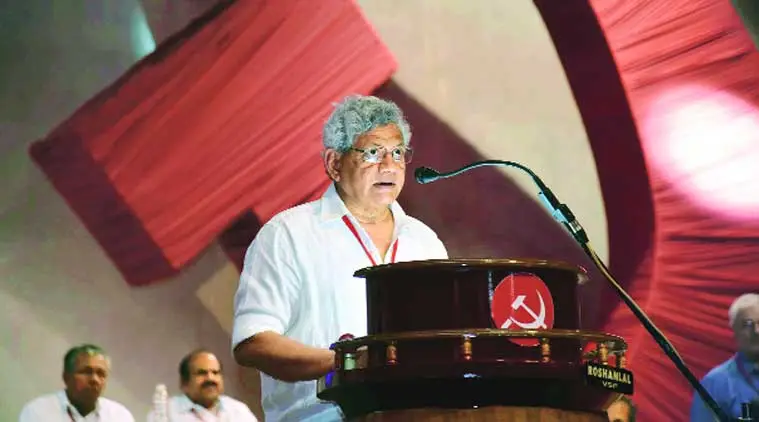Sitaram Yechury, a prominent figure in Indian politics and a staunch Marxist leader, passed away at the age of 72 on September 12, 2024. The three-time general secretary of the Communist Party of India (Marxist) (CPIM) had been receiving treatment for an acute respiratory tract infection at Delhi’s All India Institute of Medical Sciences (AIIMS). Despite efforts by medical professionals, Yechury, who had been on respiratory support, could not recover.
A Lifelong Commitment to Marxist Ideology
Yechury, a former Rajya Sabha member from Bengal, was known for his unwavering commitment to Marxist principles and his role in shaping the CPIM over the past five decades. He made significant contributions to national politics, especially in his involvement with the United Front government in 1996, where he played a key role in drafting the Common Minimum Programme. In 2004, he was instrumental in coalition-building efforts that led to the formation of the United Progressive Alliance (UPA) government, carrying forward the legacy of the veteran Marxist leader Harkishan Singh Surjeet.
Early Years and Political Journey
Yechury’s political journey began during his time at Jawaharlal Nehru University (JNU), where he was pursuing a master’s degree in Economics. Along with fellow leader Prakash Karat, Yechury established a strong left-wing presence at the university. His opposition to the Emergency in 1975 led to his imprisonment, but this only strengthened his resolve. He became a key figure in the CPIM’s student wing, the Students’ Federation of India (SFI), and was elected its president three times.
CPIM Leadership and Contributions
In 2015, Yechury succeeded Prakash Karat as the general secretary of the CPIM and served for three terms. His leadership was marked by his efforts to revive the party’s influence in Bengal and Kerala, two key regions for the CPIM. As a politburo member for 32 years, Yechury’s strategic insights helped steer the party through challenging times.
Respected Across Political Lines
Yechury’s passing has prompted tributes from leaders across the political spectrum. Congress leader Jairam Ramesh expressed his condolences on X (formerly Twitter), calling Yechury a “multilingual bibliophile, an unrepentant Marxist with a pragmatic streak, and a superb parliamentarian.” Ramesh also spoke about their three-decade-long association, noting Yechury’s ability to maintain friendships across party lines.
A Lasting Legacy
Yechury’s influence on Indian politics and the CPIM is undeniable. His leadership, intellectual contributions, and strategic acumen leave behind a legacy that will be remembered for years to come. His dedication to Marxist ideology, combined with his pragmatic approach to politics, made him a unique figure in Indian public life.
Conclusion
Sitaram Yechury’s death marks the end of an era for the CPIM and Indian left-wing politics. His legacy as a leader, thinker, and strategist will continue to inspire future generations. His passing is a significant loss not just for his party, but for the entire Indian political landscape.















